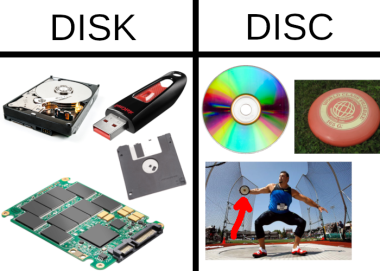Is "disk" just a different spelling of "disc" or are they actually different words?
I heard some people say theyre the same thing, but others are adamant that they have different meanings. Which is it?

There have been multiple accounts created with the sole purpose of posting advertisement posts or replies containing unsolicited advertising.
Accounts which solely post advertisements, or persistently post them may be terminated.
I heard some people say theyre the same thing, but others are adamant that they have different meanings. Which is it?
